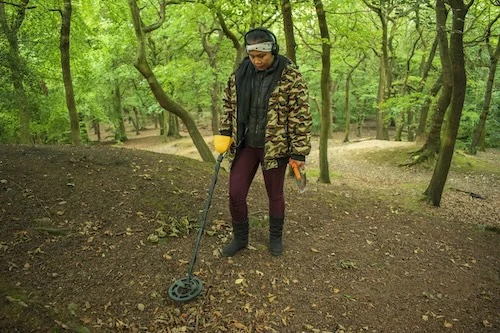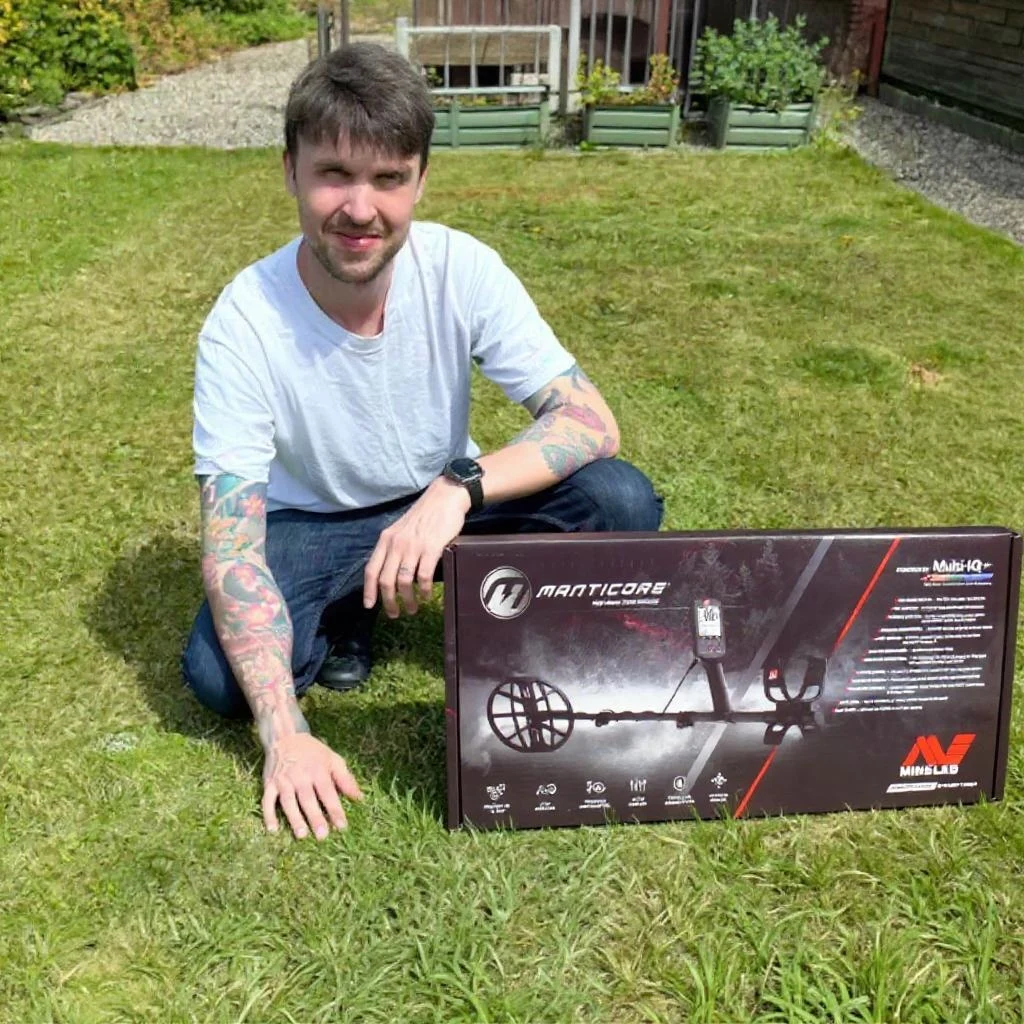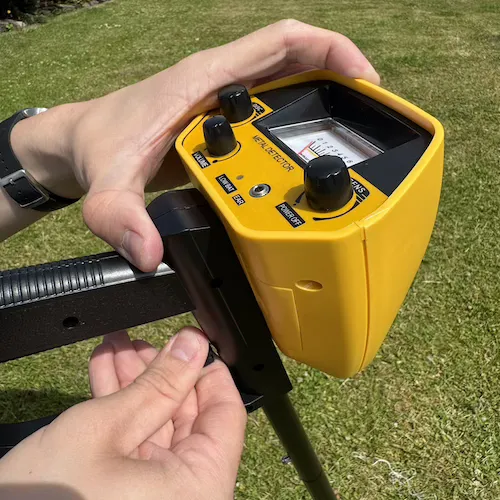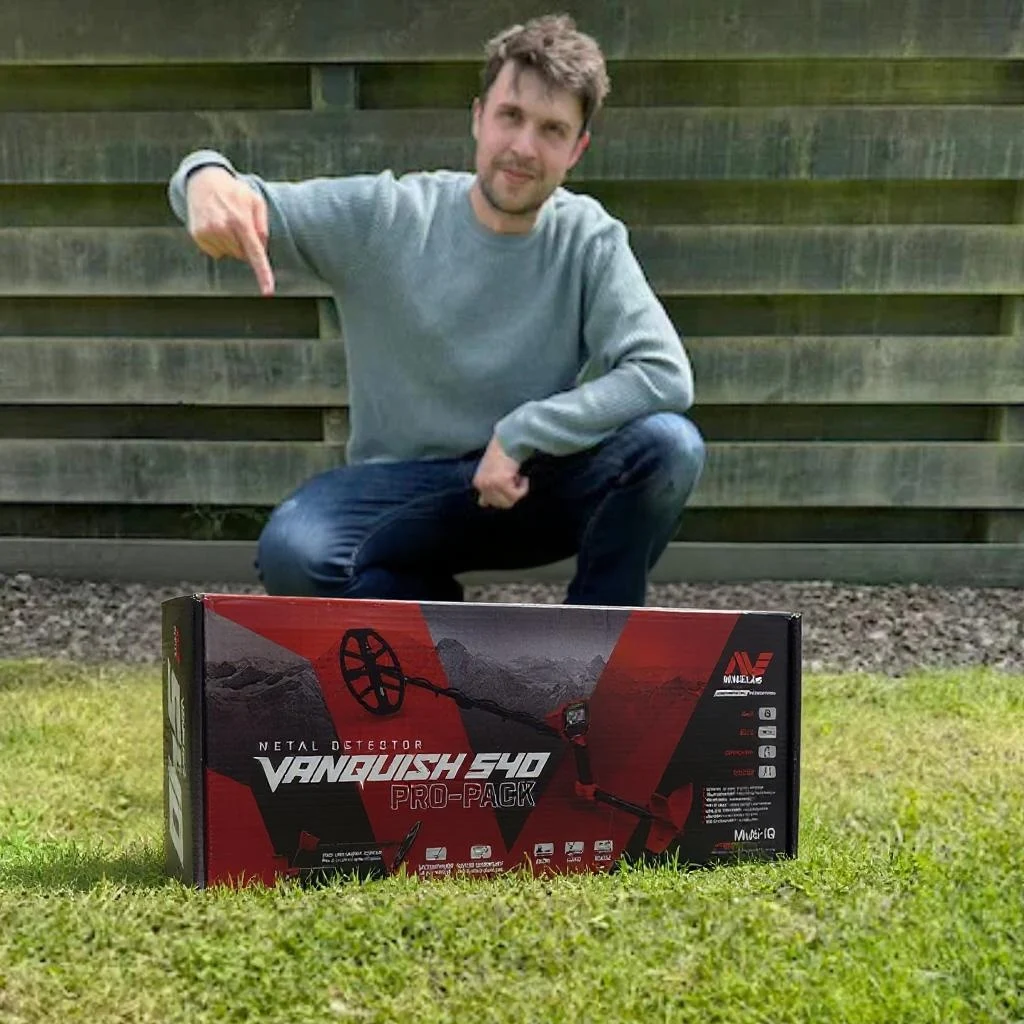Essential Metal Detecting Clothing & Gear for the UK

Written by Piotr Lesniewski
Detectorist • Scotland
As an Amazon Associate we earn commission from qualifying purchases. Read our full Affiliate Disclosure.
You'll quickly discover that Britain's unpredictable weather and varied landscapes can make or break your metal detecting adventures.
Whether you're hunting across muddy farmland in the Cotswolds or exploring ancient battlefields in Yorkshire, what you wear directly impacts your comfort, safety, and success rate.
The wrong clothing choices won't just leave you miserable—they could force you to abandon promising sites early or miss valuable finds altogether.
Key Takeaways
- Wear heavy-duty cargo trousers with ripstop cotton or canvas for durability and pockets to store finds and tools.
- Choose waterproof hiking boots with ankle support and aggressive tread patterns for muddy fields and rough terrain.
- Use cut-resistant gloves with reinforced palms and nitrile coating for protection when digging and handling sharp objects.
- Layer clothing with moisture-wicking base, fleece mid-layer, and waterproof outer shell for UK's variable weather conditions.
- Carry essential accessories including finds pouch, tool belt, knee pads, and headlamp for comfortable and organized detecting sessions.

Essential Head and Upper Body Protection for UK Weather
The unpredictable British climate demands strategic layering when you're spending hours outdoors with your metal detector.
Start with a moisture-wicking base layer that'll keep sweat away from your skin during active digging sessions. Add a lightweight fleece or wool mid-layer for insulation that you can easily remove if temperatures rise.
Your outer shell should be waterproof and breathable – essential for those sudden downpours that define UK weather.
Choose jackets with adjustable cuffs and hem to prevent debris from entering while you're kneeling or crawling.
For headwear, pack both a warm beanie for chilly mornings and a peaked cap for sun protection. A buff or neck gaiter provides versatile protection against wind and rain while allowing quick adjustments as conditions change throughout your detecting session.

Hand and Arm Protection While Metal Detecting
Your hands and forearms face constant abuse during metal detecting sessions, from thorny undergrowth and sharp metal fragments to rough soil and potential contamination from buried objects.
You'll need durable gloves that balance protection with dexterity for handling finds and operating equipment. Choose cut-resistant gloves with reinforced palms and fingertips, avoiding bulky materials that impair grip sensitivity.
Nitrile-coated work gloves offer excellent puncture resistance while maintaining flexibility for delicate retrieval work. In winter, layer thin liner gloves beneath waterproof outer gloves to prevent frostbite during extended sessions.
For arm protection, wear long-sleeved shirts or lightweight arm guards when detecting in dense vegetation. Consider gardening sleeves for bramble-heavy areas.
Always carry spare gloves since wet or torn protection compromises safety and comfort during your detecting adventures.

Lower Body Clothing for Comfort and Durability
Since metal detecting often involves kneeling, crawling, and navigating challenging terrain, you'll need lower body clothing that withstands constant friction while keeping you comfortable during long sessions.
Choose heavy-duty cargo trousers or work pants made from ripstop cotton or canvas blends. These materials resist tears from thorns, rocks, and rough surfaces while maintaining breathability.
Cargo pockets prove invaluable for storing finds, spare batteries, and small tools without creating bulk around your waist.
Avoid jeans, as denim restricts movement and loses durability when wet.
For footwear, select waterproof hiking boots with ankle support and aggressive tread patterns. Wellington boots work well in consistently muddy conditions but lack the support needed for uneven terrain.
Moisture-wicking socks prevent blisters during extended detecting sessions.

Footwear Selection for Different UK Terrains
Britain's diverse landscapes demand specific footwear choices that match each terrain's unique challenges. You'll need waterproof hiking boots with ankle support for muddy fields and rough farmland.
These prevent twisted ankles when crossing uneven ground and keep your feet dry during wet conditions.
For beach detecting, choose lightweight water shoes or breathable mesh trainers that drain quickly and resist sand accumulation. They'll protect your feet from sharp shells and debris while providing grip on wet rocks.
Woodland areas require sturdy leather boots with deep treads for navigating roots, fallen branches, and slippery leaves. Steel-toed options offer extra protection from hidden obstacles.
Urban detecting calls for comfortable walking shoes with good cushioning, as you'll spend hours on hard surfaces like pavements and parks.

Must-Have Accessories and Gear Organization
Organization transforms a chaotic metal detecting session into an efficient treasure hunt.
You'll need a quality finds pouch with multiple compartments to separate coins, jewelry and rings and artifacts. A sturdy tool belt keeps your pinpointer, digging tool, and gloves within easy reach.
Don't overlook essential metal detecting accessories like knee pads for comfortable ground work and a headlamp for early morning or evening sessions. A small brush removes dirt from delicate finds, while plastic bags protect fragile items.
Consider a lightweight folding chair for breaks during extended hunts.
Your gear organization system should prioritize quick access and weight distribution. Use carabiners to attach frequently-used tools to your belt.
A waterproof phone case protects your device while allowing photography of significant discoveries.
Conclusion
You'll maximize your metal detecting success in the UK by layering moisture-wicking clothing and wearing waterproof gear.
Don't forget cut-resistant gloves, sturdy boots, and cargo pants with plenty of pockets. Your tool belt, knee pads, and headlamp will keep you comfortable during long searches.
Pack finds pouches, brushes, and plastic bags to protect your discoveries.
With proper clothing and accessories, you'll stay comfortable while uncovering Britain's hidden treasures, regardless of weather conditions.
Author Profile

Piotr Lesniewski
"Digging up the past, one signal at a time."
Polish-born, Scotland-based, and obsessed with the beep. My passion began decades ago, exploring fields with my Dziadek (grandfather). Now, with over 10 years of digging under my belt, I'm here to share everything I've learned—unfiltered and unbiased—to help you unearth your own piece of history. No sales pitches, just real field experience.